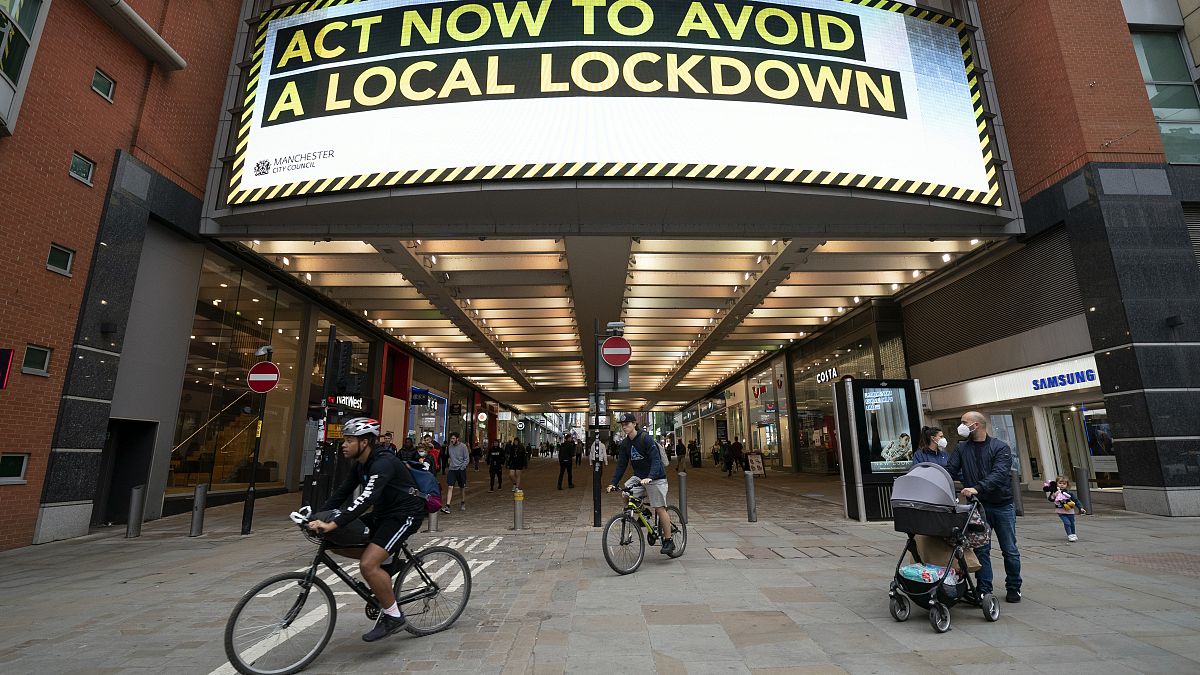Scientists at Imperial College London estimated that there are about 96,000 new cases of COVID-19 in England every day and that the outbreak is doubling every nine days.
Nearly 100,000 people are being infected with COVID-19 every day in England, a new study has found, warning that "something needs to change before Christmas".
Scientists at Imperial College London estimated that there are about 96,000 new cases of COVID-19 in England every day and that the outbreak is doubling every nine days.
The study, funded by the Department of Health, saw scientists taking samples from 85,000 people selected randomly across England in late October. It found that about one in every 128 people is infected with the deadly virus.
"The rate of growth we’re seeing is really quite rapid," Steven Riley, a professor of infectious disease dynamics at Imperial College London, one of the leaders of the study, said.
They reported that rates were increasing among all age groups, including those most at risk: they noted a tripling of COVID-19 rates in people aged 55 to 64 and a doubling in those over 65.
"Our data shows there’s no reason to expect that exponential rise to change for the next few weeks regardless of what we do," Riley warned. "New cases will turn into hospitalisations." It was unclear whether recently imposed restrictions in northern England would be enough to stop the spiralling spread of the virus, he added.
Riley also said that if politicians were considering more stringent measures, "the (study) results argue for something sooner rather than later" adding that "something needs to change before Christmas."
Figures released on Thursday by the government revealed that a further 24,700 cases had been confirmed over the previous 24 hours.
The UK is Europe's most heavily impacted country in terms of its death toll, the tally rising by 310 on Wednesday to reach 45,675.
To slow the second wave of the disease, the government has rolled out a multi-tier system with local areas forced into tough restrictions based on their epidemiological situations. But Downing Street is now under pressure to do more.
Mark Walport, a former chief scientific officer, told the BBC that on the current measures "there’s little evidence that there is as much social distancing as there was when we clamped down on the first wave and so we know that the risk is significant that cases will continue to grow."
Across the Channel, French President Emmanuel Macron announced on Wednesday evening that a second national lockdown would come into force on Friday and last until December 1.
He said during his televised address that the spread of the virus has surpassed "even the most pessimistic projections" with up to 50,000 people infected every day and more than half of the country's current intensive care beds occupied by COVID-19 patients.
Macron's address came just hours after German Chancellor Angela Merkel announced a limited lockdown to begin on November 2.


